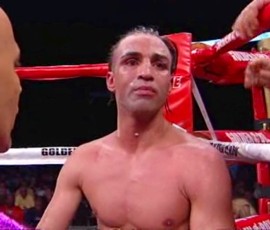 By Ted Sares – Boxers work too hard and take too many chances,” he said. “It is important this sport is administered right. –Teddy Atlas
By Ted Sares – Boxers work too hard and take too many chances,” he said. “It is important this sport is administered right. –Teddy Atlas
The first thing I tell people watching on television is to turn off the sound…The reason is you’re being led, even if you’re being led correctly, by what the commentators are saying –Bert Sugar.
The fact that many fight fans have been turned away by the blatantly wrong judging speaks to the degree to which these issues must be addressed. –David Chen
Controversial decisions are an inherent part of boxing and boxing has an abundance of systemic flaws, but blatantly outrageous scorecards need to be minimized.. Referring to the awful decision in the Emanuel Augustus -Courtney Burton bout in Michigan, Teddy Atlas said,” We’ve seen some horrific decisions, and we don’t see them once every millennium…If you’re any kind of boxing fan, you see them much too often. If it’s several times a year, it’s too much, but it’s way beyond that. Every month, you’re going to see a bad decision if you watch enough boxing.” Taken from “Are there real answers to questionable decisions?” By Kieran Mulvaney Special to ESPN.com (April 6, 2006).
But in the grand scheme of things, just how many outrageous decisions are there? “It’s a very subjective sport,” notes veteran Nevada judge Jerry Roth. “We’re sitting on three separate sides of the ring, and everybody’s going to see different things from different angles. That’s why there are close decisions. But the majority of those decisions are very, very close fights.” (Mulvaney)
But complaining is one thing and correcting is quite another. In this regard, it seems there needs to be some standardization of rules when it comes to judges. And these rules need to apply to their qualifications, continued training/education (for example, the effect of a knockdown upon scoring), penalties and/or suspensions (and even expulsions) for repeated outrageous scorecards, pattern of “hometown” decisions, periodic eye examinations, occupation (to prevent potential conflict of interests), detachment from promoters, and other such elements. The use of instant replay in certain cases might also be included. A national commission would likely do this, but that is another issue altogether. State commissions have done a good job of standardizing medical and emergency procedures at ring side. Surely, the same can be done when it comes to judges.
As for Malignaggi-Diaz fight, this was one of those instances where one judge scored the fight noticeably differently from his colleagues, not to mention the consensus view among ringside observers, fans, and the press. But on balance, I believe such disproportionate scoring happens less frequently than what might appear to be the case. Is this any consolation to Paulie? Of course not, particularly since he seemed to know it going in. Should the judge in question be subject to a serious discussion with the Texas Boxing Commission? Absolutely. The point is, let’s take this situation and get some positives from it. Simply complaining without offering recommendations seems to fall on too many deaf ears.
By the way, I had Paulie winning a close decision, but I could live with a draw.